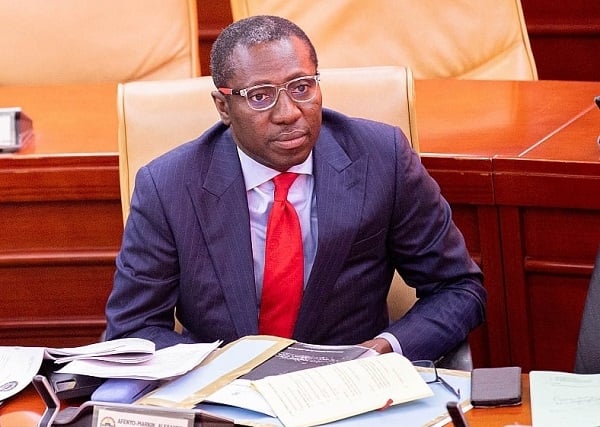The vetting of ministerial nominees on Thursday, January 30, 2025, descended into chaos and confusion, stemming from disagreements between the New Patriotic Party (NPP) Minority Caucus and the National Democratic Congress (NDC) Majority Caucus within Parliament’s Appointments Committee. According to Minority Leader and Appointments Committee Co-Chair Alexander Afenyo-Markin, the disruption arose from the Majority’s attempt to disregard pre-sitting agreements regarding the number of nominees scheduled for vetting that day. The pre-arranged schedule called for three nominees, which was subsequently increased to four by mutual agreement. However, the situation deteriorated when the NDC attempted to introduce a fifth nominee, and further escalated with the unexpected appearance of Foreign Affairs Minister-designate Okudzeto Ablakwa, who attempted to join the proceedings without prior agreement.
The NPP Minority Caucus perceived these actions as a deliberate attempt by the NDC Majority to manipulate the vetting process and utilize their numerical advantage to impose their will. Afenyo-Markin highlighted the presence of additional regional ministers-designate who were not scheduled for vetting but were nonetheless brought into the committee room, further reinforcing the Minority’s belief that the NDC was employing intimidation tactics. This deviation from established procedures and agreements created an environment conducive to the chaos that ultimately ensued. The Minority Leader stressed the importance of collaboration and mutual respect between the two caucuses, emphasizing that the NDC’s electoral victory does not grant them absolute authority but necessitates governance in conjunction with the NPP.
Afenyo-Markin articulated the NPP’s commitment to actively participate in parliamentary proceedings, rejecting the notion of boycotts as a strategy. He affirmed the Minority’s intention to remain engaged in the process and voice their dissent, making it clear that they will not passively accept the NDC’s attempts to impose their will unilaterally. This resolute stance underscores the NPP’s commitment to holding the government accountable and ensuring that parliamentary procedures are adhered to. Their determination to remain present and challenge perceived irregularities is crucial for maintaining the balance of power and upholding democratic principles within the parliament.
The incident highlights the delicate balance of power within Ghana’s parliament and the potential for procedural disagreements to disrupt the legislative process. The NPP’s accusations against the NDC raise concerns about the potential for the Majority to abuse their numerical advantage, while the NDC’s actions suggest a desire to expedite the vetting process, possibly at the expense of thorough scrutiny. The clash between the two caucuses underscores the need for clear communication, adherence to agreed-upon procedures, and mutual respect to ensure the smooth functioning of the parliament.
Looking ahead, the ability of the two caucuses to find common ground and establish a working relationship will be crucial for the effective governance of Ghana. The incident serves as a reminder that while elections determine the composition of parliament, the true test of democracy lies in the ability of different political factions to work together for the common good. The NPP’s commitment to active participation and vocal dissent, coupled with the NDC’s responsibility to respect established procedures and engage in good-faith negotiations, will be essential for navigating future legislative challenges and ensuring a stable and productive parliamentary process.
The events surrounding the disrupted vetting process underscore the importance of transparency and adherence to established protocols in parliamentary proceedings. The accusations of procedural breaches and attempts to manipulate the process raise broader questions about the conduct of parliamentary business and the need for mechanisms to ensure accountability and prevent abuse of power by the majority party. The incident serves as a crucial reminder of the importance of upholding democratic principles and fostering a culture of respect and collaboration within the legislative branch of government.


